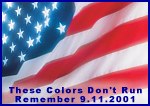

 |
 |
Anyone with even minimal experience in the wilderness will attest to the vital importance of having a good knife at hand, or two, or three even. It wasn't so many years ago that virtually every adult male carried a pocket knife of some sort. Anyone venturing into the wilderness always carried a "hunting" knife. Times change and today some pilots don't even own a pocket knife, let alone a hunting knife. In my opinion, no pilot should ever take off without a knife in their possession. You may consider that my number one rule.
I am never without at least one folding knife and generally I carry two knives and a Leatherman Tool. I'd feel undressed without a knife on my person. A knife, of some sort, should be part of every pilot's basic gear. As a survival tool, nothing is more fundamental, more indispensable or more important. A knife is the most versatile and essential piece of survival equipment. With a suitable knife you can improvise virtually everything else you need to survive, were it necessary.
Sure, a knife can itself be improvised from scavenged man made materials, found bone or some types of rock, albeit with some considerable effort. It will even work, after a fashion, but why put yourself in that predicament? A quality, practical, fixed blade knife (also called a "sheath," "belt" or "hunting" knife) is ESSENTIAL for inclusion in your survival kit, assuming you don't already carry one on your belt, and most of us in the "lower 48" don't.
On the other hand, there's a lot of wisdom in the old saw that "the best survival knife is the one you have with you." A folding (pocket) knife carried on your person is your ace in the hole, if it should come to that. A knife is simply too important to be without.
NOTE: For a fairly comprehensive glossary of cutlery terms and related information, try A.G. Russell's Knife Encyclopedia.
If you have the option, however, you really do want a proper fixed blade knife. The added strength and utility of a fixed blade knife provides an additional measure of security when the chips are down. What's "proper" is open to discussion, however.
Among those with the expertise, the question of what sort of knife is best for survival use can be a highly charged issue. Each has their "holy grail" when it comes to survival knife design. This isn't something to be trifled with, for they can be passionate in defending their choices, preferences generally based on years of experience. Yet, there are often radical differences of opinion between these experts, so you must still make a choice between the many choices the experts offer. It is also important to bear in mind that their preferences are most often predicated on a level of knowledge and proficiency with the tool that the average pilot simply does not have.
Here, I have limited myself to discussion of a "practical ideal," a survival knife which reflects a compromise with which, I think, most survival experts can live, even if it may not hone perfectly true to their preferences. More importantly, it gives the survivor, particularly the inexperienced survivor, a knife with which they can survive and live.
Of necessity, I must narrowly limit the criteria. If I don't stick to basics and easily understood criteria, then it is all too easy for the unversed and the inexperienced to end up with something completely unsuitable. There is too much at risk to chance that outcome. Narrowing the choices ensures that all are reasonably well equipped since there is a reasonable selection of knives from which to choose, in a wide range of prices.
There are many knives that make perfectly acceptable survival blades, but which don't exactly fit this ideal. Two examples at opposite extremes might be the Gerber "LMF" and Tom Browns "Tracker" (now offered by TOPS Knives). The LMF will work OK since it is so robust it tends to overcome a couple of inherent design flaws, vis-a-vis the ideal, though it is more massive than some might like. The Tracker might be considered a bizarre design in comparison to this ideal. One that, at first glance, might seem far removed from the ideal presented here. But, for the survivor who knows how to use it, a critical point, it is an extraordinary survival tool, which does, indeed, embody many aspects of the ideal, but does so in a most unconventional manner. For that matter, any knife can be put to use as a survival tool. Some are just better suited than others.
Even an ardent supporter of the "any knife can be a survival knife" notion will have to admit that it is far better to have a knife well suited to the task at hand, wilderness survival. As it turns out, the best choice results in a design that is quite versatile and suitable for most any normal use, exactly what one should have in a survival blade which might be called upon to perform a diverse set of tasks.
Still, every knife with honest potential for practical use as a primary wilderness survival tool embodies compromises. There is enough information in this section to allow those with more experience or a more adventuresome nature to go beyond the narrow definition given here, accepting some compromise(s) to gain some particular capability or utility.
|
To continue reading about knives, click on the section below or just click the "Next >>" link at the bottom of each page
Sharps To Avoid (poor choices for a survival knife)
Desireable Features
Serrations or Smooth Edge?
Trapped! (safety knives to cut seat belts)
Blade Shape
Blade Proportions
The Dull End
To Rust or Not (stainless steel or plain carbon steel?)
Respect The Compromise (compromises inherent in folding knives)
Diamonds, A Knife's Best Friend (diamond knife sharpeners)
Other Sharpening Options
Foolproof (vee shaped knife sharpeners)
Serrated Edges More Particular (serrated edge knife sharpeners)
|
| SELECT AND USE OUTDOORS AND SURVIVAL EQUIPMENT, SUPPLIES AND TECHNIQUES AT YOUR OWN RISK. Please review the full WARNING & DISCLAIMER about information on this site. |
Publisher and Editor: Doug Ritter
Email: Doug Ritter
URL:
http://www.equipped.org/devices4.htm
Revision: 012 March 27, 2003
![]()
Email to: [email protected]
|
© 1994 - 2003 Douglas S. Ritter & Equipped To Survive Foundation, Inc. All rights reserved. Check our Copyright Information page for additional information. |
Read the ETS Privacy Policy |